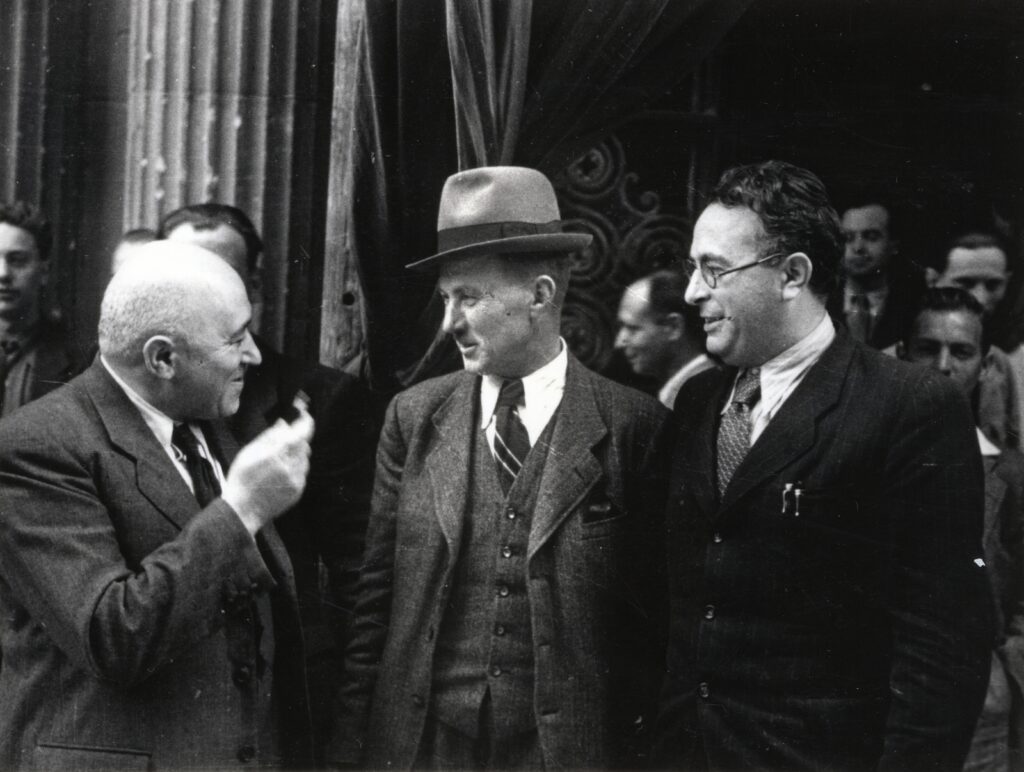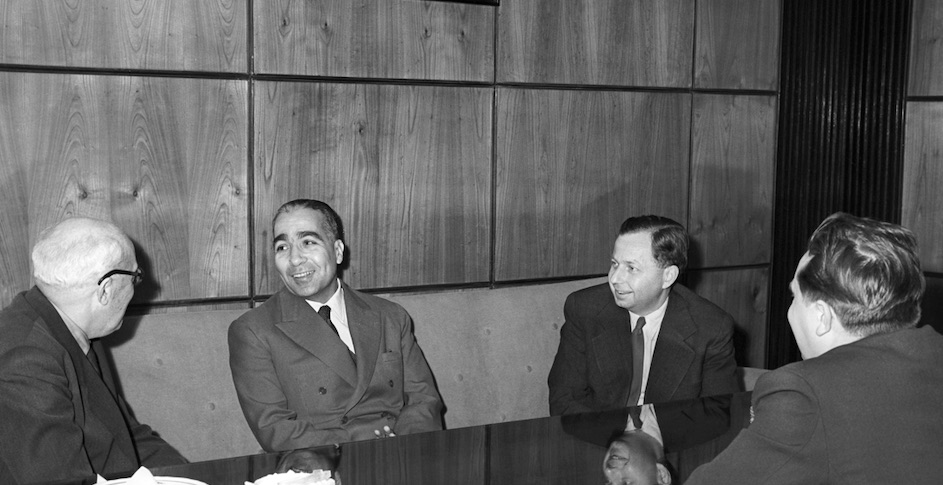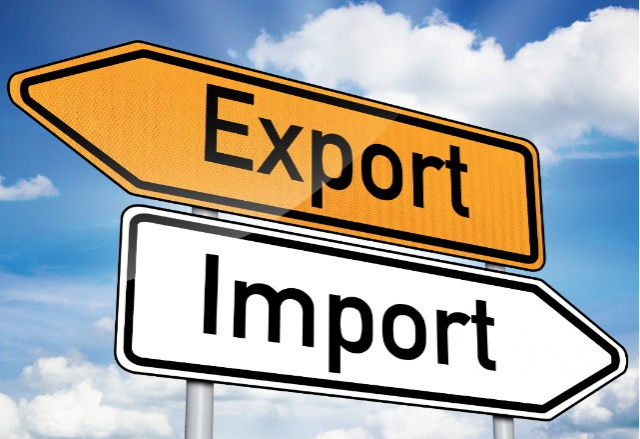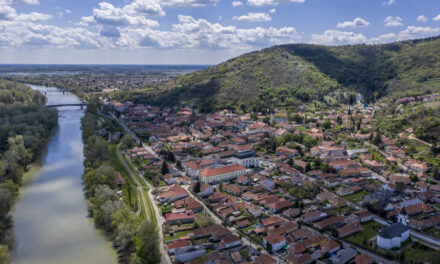The historian Zsuzsanna Borvendég's series was originally published on the PestiSrácok website, but there are certainly those who missed it. But those who haven't read all the parts should also read it again. Knowing the whole picture, can we understand how we got here?
From the beginning of the seventies, the heyday of the mafia network based on foreign trade arrived. Already from the mid-sixties, they lobbied vigorously for the expansion of their economic power. The all-pervasive party-state bureaucracy was an obstacle for the corruption networks created using intermediary trade Of course, all this in order to only strengthen their own privileges and continue to exclude outsiders from the game.
István Salusinszky was one of those who were started on his career by the elite group of Muscovites. László Háy and Zoltán Vas embraced him and involved him in organizing the communist expropriation of foreign trade as early as 1945. He soon found himself in an important and trusted position: between 1947 and 1950, he worked as an advisor to the trade office in Moscow, where he had the opportunity to learn the Soviet methods of economic networking. After returning home, he worked as a senior official at the Ministry of Foreign Trade, from where he was transferred to Rome in 1958.

Mátyás Rákosi, András Szobek and Zoltán Vas (photo: Fortepan)
All the way to Rome
Rome was an extremely important station for the foreign interests: after Frankfurt, it was perhaps their most important western base. It is no coincidence that - just as in Frankfurt after 1956 - military intelligence in Rome, that is, the MNVK-2. his people managed the trade representation.
Also because, in accordance with the division of tasks of the Warsaw Treaty, the monitoring of the military targets of Northern Italy fell on the Hungarian People's Army, in addition to the operational direction in the Danube Valley. István Salusinszky is also the MNVK-2. as the winner, he came to the capital of Italy, where he maintained extensive relations with the general staff of the Italian Communist Party and the directors of the various party companies. This embeddedness determined his later career in the long run.
At the head of MKB
In 1963, Salusinszky returned home and was entrusted with a much more important task: he became the president of the Hungarian Foreign Trade Bank (MKB). In the following years, he lobbied to allow Hungarian foreign trade companies to set up companies in the West. Before 1968, a total of 14 Hungarian-owned enterprises operated in the capitalist world, they were mostly secret service bases , their establishment was tied to a unique license.
At the same time as the introduction of the "new economic mechanism" in 1968, MKB was given the right to supervise these companies, but the administrative burdens were not significantly eased and individual licenses were still needed. The MKB promoted the establishment of companies, while year after year it initiated the simplification of regulations. The latter was difficult, so the number of enterprises did not increase as they would have liked, but at the same time, in 1970 we already know about 40 Hungarian interests operating in the West.

István Salusinszky (second from the right) at a business meeting (photo: MTI)
And the age of impex has come
This period was the time of the start of the new economic mechanism, during which the production companies wanted to regain the right to sell their products themselves as market participants. This would have significantly reduced the possibilities of outsourced companies, so in addition to authorizing Western company foundations, it was also necessary to ensure that this authorization - if realized - really only benefits them. As we know, the new economic mechanism ran out of steam by the beginning of the seventies (last week we read that even political murders could be linked to it), but at the same time, the main objective of the financial and foreign interests was realized, that they could establish joint ventures in the West without special authorization.
The finance minister's decree issued in 1972 opened the possibility for the creation of an offshore company empire, so that only foreign trade companies that successfully preserved their privileges could participate in it. Any impex could freely establish a business in the capitalist world without any special authorization, they only had to register. Half of the resulting enterprises were partially owned by a Hungarian impex, and the other half involved one or more foreign partners. Their financial supervision was provided by the Financial Institution Center, but since the company operated abroad, evading domestic control was not a problem.
State security was investigated in vain
The company operating abroad was governed by the local legal environment, i.e. they were free to establish new and new companies, of which no institution in the mother country had any official knowledge, i.e. abuses around financial settlements became common. State security also recorded some of the anomalies, such and similar reports can be found in their documents: "this joint venture is a non-existent company because it is not registered in the Financial Institutions Center. As a result, it is not subject to domestic financial control, it does not pay profits, its financial operations cannot be traced, they book as much of the money received as they want."
Licensing the joint venture system was a huge drag, such a possibility did not exist in the other countries of the bloc. Only the Romanian party leadership adopted a similar regulation in 1971, which made it possible for Romanian state enterprises to establish companies together with capitalist companies, but these could only operate with their headquarters in Romania, that is, they were trying to attract investors to their country - it is a different matter whether the business due to the poor environment and infrastructure, the initiative did not lead to resounding success.
The situation in Hungary was fundamentally different: here, the purpose of the decree was not to attract investors, that is, working capital, but, on the contrary, to drain capital. These joint ventures could only operate with their headquarters in the West, they were not allowed to be established in this country. Although this regulation was relaxed years later, mainly for the sake of the Siemens company, it was only in the second half of the 1980s that the establishment of companies with Western interests based in Hungary took off.
The money pump has started
The joint ventures established in the capitalist world did not produce, but provided services, within which they primarily engaged in intermediary trade. A few weeks ago, you could read about how Hungary became the economic link of the Cold War world order by promoting re-exports: the Hungarian foreign "elite" broker specialized in trade, and in some of the transactions the goods were delivered at a loss, that is, they were bought at a higher price than they were sold for .
Of course, the foreign trader or impex who realized the deal received his reward, or better said: his commission. The commercial intermediary network built deliberately after 1945 no longer transferred subsidies intended for the start of the world revolution through the secret system, but started working for its own pockets. A system of corruption was installed on top of the system created on an ideological basis, which stripped it of its benefits.
With the establishment of joint ventures and the operation of the offshore company empire built with their help, hiding the profit was no longer a problem: the money pump that robbed the country was started. The ideological glaze remained the network's own to the extent that through these companies the purchase of the products on the COCOM list became a snap, meaning that our country became Moscow's largest embargoed supplier in the eighties. This is partly why the operation of the capital pump was abolished.

image: legalraasta.com
An opaque company network was created
It can be seen that this method has truly become systemic, as all impex endeavored to establish their own businesses in the West. By the first half of the 1980s, roughly two hundred joint ventures registered in Hungary were operating in capitalist countries , but we cannot even estimate how many new companies they created abroad. Just as it is also difficult to assess how many people in this country could have benefited from everything. The top management of impex companies, financial specialists (bankers), some secret service officers (mainly from the staff of MNVK-2), privileged persons holding certain party-state functions and persons holding certain positions in the ministerial administration - who could provide cover for the abuses - belonged to the interest group.
Managed by a small elite team
The number of the most important impex companies can be put at around half a hundred, but with the new foundations, mergers, and terminations, this was constantly changing. In 1980, 56 state-owned companies engaged in foreign trade were operating in the country, and another 27 were established in the following seven years. In 1987, 26,000 people worked in foreign trade and roughly 3,600 were in senior positions, but only a few hundred of them were aware of the nature and extent of the abuses. Executives were also needed, who had a little bit of extra income, but they probably didn't have an overview of the whole thing. In the banking sector, the number of initiates could be limited to an even narrower circle, just like in the secret services.
The involvement of the party leadership is a big question, since the government and the various administrative institutions of the party definitely had to help the smooth operation of the system, and obviously the support from the innermost party circles was also needed. It is quite certain that there were significant fault lines within the party members as well, since not all of them were born traitors, regardless of communist views. There were those who, because of their orthodox "belief", condemned (and perhaps did not even understand) all manifestations of capital and capitalist business politics, but there were also those among the party leaders who saw through the fatal processes and therefore opposed the rise of the network. It is also thanks to the fight between them that we have all the documentation that helps us wrap up the threads. (We already know some of those responsible, their names will continue to be read further on in this series.) Overall, we can say that a fairly narrow circle, perhaps a few hundred, at most one or two thousand people, were responsible for the immeasurable damage, in 1980 and 2010 robbed offshore for 242 billion dollars.
Only a fraction of this money ended up in the pockets of domestic accomplices. Western financial centers, multinational companies, i.e. the global financial elite, also got rich on this.
Source: PestiSrácok
Author: historian Zsuzsanna Borvendég
(Header image source: YouTube screenshot)












